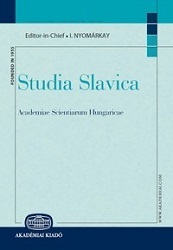Устойчивые сравнения в языке спортивного дискурса: русско-украинские параллели
Stable Comparisons in the Language of Sports Discourse: Russian–Ukrainian Parallels
Author(s): Aleksndr Viktorovich SavchenkoSubject(s): Media studies, Lexis, Semantics, Pragmatics, Comparative Linguistics, Eastern Slavic Languages, Sports Studies, Phraseology, Stylistics
Published by: Akadémiai Kiadó
Keywords: the Russian language; the Ukrainian language; sports discourse; mass media; phraseology; idioms; phraseological units; stable comparisons; Slavic languages; Russian–Ukrainian language convergence;
Summary/Abstract: Nowadays, sports play an important role in the world, both from the pure competitive (even emulative) and political point of view. The influence of sports is also traced here at the linguistic level: many words and expressions from the field of sports penetrate the language but, on the other hand, the sphere of sports itself becomes a fertile ground for the emergence of new expressive words and idioms having different stylistic and expressive colours that can perform various pragmatic functions. In the language of sports, lexical units often acquire a new meaning related to sports; in some cases, the meanings of already existing metaphorical phraseological models are actualized. The paper is devoted to the problem of the status and description of one of the types of phraseological units, i.e. stable comparisons, which are used in the sphere of sports or sports discourse in modern Russian and Ukrainian languages. On the one hand, these units have their origins in sports slang as well as in mass media language and also come from common phraseology and other discourses. On the other hand, such units have not only a high expressive level but they are often used as picturesque and metaphorical means in other discourses, e.g. political, social, or economic. Such expressions are nowadays very popular and commonly used both in spoken language (speech) and in mass media language. Stable comparisons are, in fact, a universally figurative and expressive means of language which can be used in any situation, context, and in any pragmatic field of language use. The sphere of sports is not an exception, where such language units fulfil various functions both in the language of sports journalism (oral reportages, articles on sports, internet communication and discussions in internet forums specializing in sports) and in the speech of the athletes themselves. This paper discusses some of the most commonly used stable comparisons in the sphere of sports (i.e. sports discourse) both in Russian and Ukrainian languages. The metaphorical models of such units are examined from the point of view of Russian–Ukrainian language convergence. It can be stated that the language of modern Russian sports journalism can be seen today to a certain extent as a possible (or potential) prototype for the development of Ukrainian-language sports discourse. Generally speaking, live contacts in interdiscourse sports communication, including the language of sports journalism, however, are still ongoing and active language interaction at the level of vocabulary and phraseology remains one of the most effective means of enriching the vocabulary of the national language.
Journal: Studia Slavica Academiae Scientiarum Hungaricae
- Issue Year: 64/2019
- Issue No: 1
- Page Range: 159-169
- Page Count: 11
- Language: Russian
- Content File-PDF

